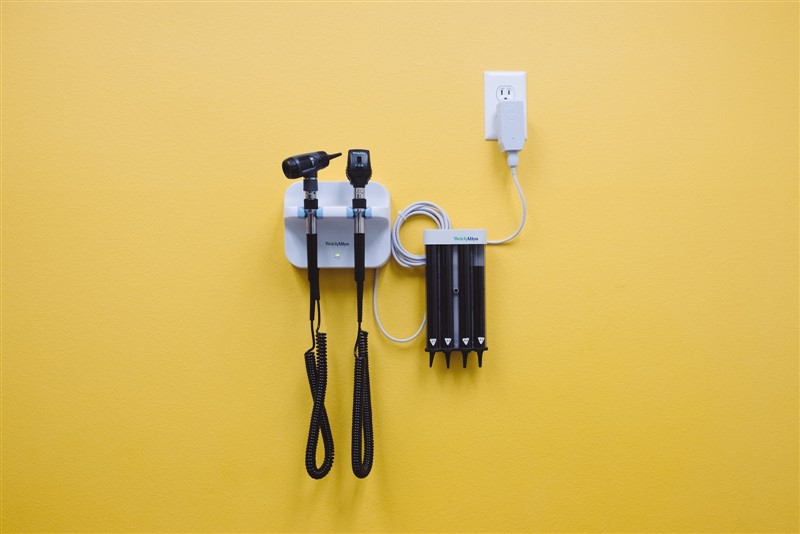A diagnosis is the determination of a disease or ailment. A prognosis is the predicted outcome of a condition.
-
 Alanna Madden
Alanna Madden
-
 January 21, 2021
January 21, 2021
-
 Grammar Tips
Grammar Tips
 January 21, 2021
January 21, 2021
 Grammar Tips
Grammar Tips
A diagnosis is the determination of a disease or ailment. A prognosis is the predicted outcome of a condition.
The nouns prognosis and diagnosis are both medical terms we use to discuss health issues. If a doctor provides a medical diagnosis, a medical prognosis typically follows. But we don’t always use these terms for health care topics, so it’s easy to see why these nouns are easily confused.
In general, the word diagnosis means ‘the identification of a disease or medical condition,’ although the noun can describe any investigation and characterization of several different subjects. This is particularly true for related terms such as diagnose (verb) and diagnosable (adjective). For example,
The noun prognosis is similar to diagnosis, except it means ‘the likely outcome of a disease or circumstance.’ And similarly to diagnosis, we’re likely to see the noun in various contexts through terms like prognostic (adjective) and prognosticate (verb). For example,
In summary, we can count on a diagnosis and a prognosis to make a conclusion about a current condition. The difference is that a prognosis is the predicted outcome of a diagnosis.

The noun diagnosis (plural ‘diagnoses’) is essentially a conclusion made after a thorough examination. As paraphrased by the New Oxford American Dictionary, a diagnosis is:
Call, conclusion, consensus, decree, finding, instruction, last word, mandate, ruling, word.
In the context of medical terminology, the noun prognosis (plural ‘prognoses’) means ‘a prospect of recovery’ expected from a particular disease or medical circumstance. However, the word also means ‘forecast’ or ‘prediction’ for topics such as sports, business, and politics.
Augury, bodement, forecast, foretelling, foresight, harbinger, prediction, prognostic, prognosticating, prognostication, prophecy, prospectus, sign, soothsaying.
Diagnosis is a late 17th-century noun from Latin via Greek diagnōsis (‘discernment’) and diagignōskein (‘to distinguish’). For either term, the prefix dia- means ‘apart,’ and gignōskein means ‘recognize’ and ‘know’ (“Diagnosis” 479).
The noun prognosis also emerged in the 17th century, but through Latin prognōsis and Greek progignōskein (‘to foreknow’). Greek progignōskein consists of pro- for ‘before’ and gignōskein for ‘know’ (“Prognosis” 1395).
Another interesting feature of diagnosis and prognosis involves the use of “gnosis,” the Greek noun for “knowledge.” According to the Online Etymology Dictionary, Greek gnosis also means “special knowledge of spiritual mysteries,” which makes sense considering how Gnosticism involves collecting religious ideologies and practices.

Now that we have a general understanding of the terms diagnosis and prognosis, it’s time to answer a common question: “what does a medical diagnosis or prognosis look like?”
Four common diagnoses include diseases like diabetes, anxiety, hypothyroidism, or osteoarthritis. However, severe ailments discussed in the news often involve various cancers, congestive heart failure, Alzheimer’s Disease, Amyotrophic Lateral Sclerosis (ALS), or Parkinson’s Disease.
As we already know, a prognosis is the prediction of disease outcome, so every prognosis varies by disease onset and severity, a patient’s medical history, the availability of treatment, etc.
For a licensed practitioner to diagnose someone with General Anxiety Disorder (GAD), a patient would need to report symptoms outlined by the Diagnostic and Statistical Manual of Mental Disorders (DSM-5) for at least six months.
According to American Family Physician, the DSM-5’s diagnostic criteria for GAD includes:
If a patient meets all criteria for GAD, a practitioner can diagnose them and provide a treatment plan. The prognosis of GAD is entirely dependent on the accuracy of diagnosis, the effectiveness of treatment, and how well a treatment plan coincides with the patient’s current condition and their ability to adhere.
According to Harvard Health Publishing, the prognosis for GAD has a good “outlook,” and, “with appropriate treatment, about 50% of patients improve within 3 weeks of starting treatment, and 77% improve within 9 months.”
Looking for more health-related grammar topics? The Word Counter has your back. Check out our lessons on topics, such as:
Before you diagnose your understanding of diagnosis vs. prognosis, test how much you’ve learned with the following multiple-choice questions.
Answers